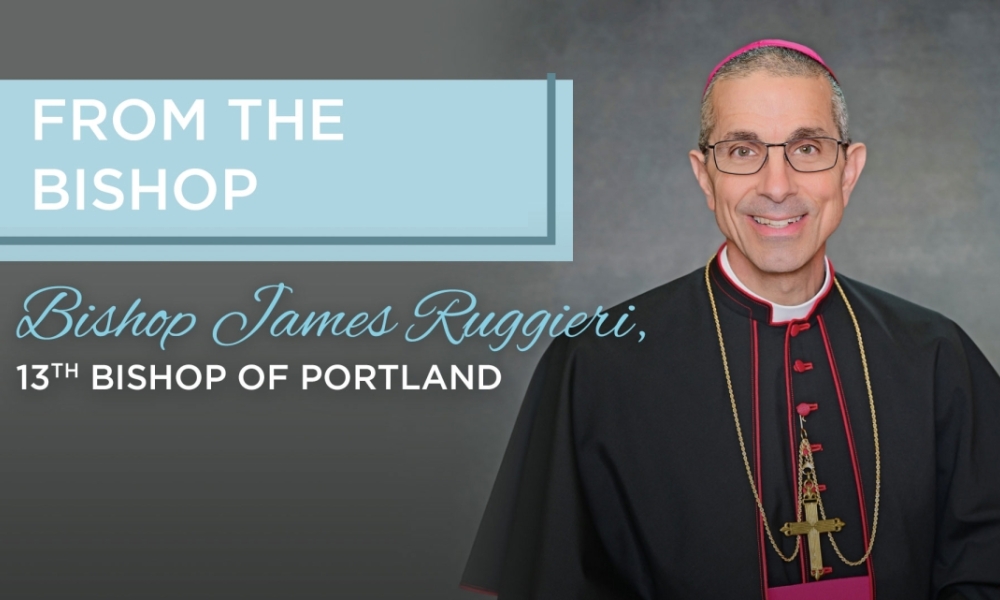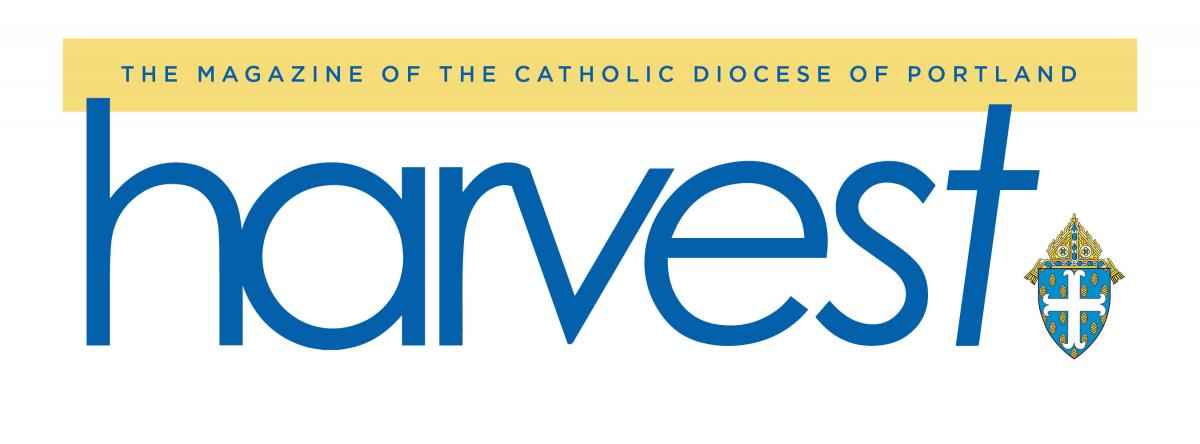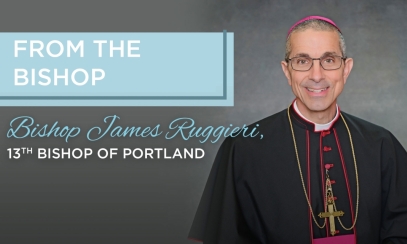
Becoming a partner with Christ and His Church
Annual diocesan appeals are not something new.
Annual diocesan appeals are not something new.
While serving as a pastor, I was offered the opportunity to lend my support to the diocesan appeal and encourage the parishioners to do the same. One of the realities of the appeal was and still is the reach of it; that is, the diverse diocesan ministries that it helped to fund. I recognized that the money raised would support the ministry and evangelization efforts of the local Church, areas that were far beyond my reach. I felt that giving a significant gift, one that was substantial for my economic bracket, was important because it allowed me to share in the larger mission of the diocese. By supporting the appeal, I became a collaborator in the mission work of my diocese, which was work way beyond my abilities.
As a fellow collaborator in the greater work of the Church, particularly the work of this local Church, the Diocese of Portland, I would like to share with you some thoughts on mission. The mission of the Church is given to her directly from her founder, Jesus. He gave the Church the Great Commission in the Gospel of Matthew, “Go, therefore, and make disciples of all nations, baptizing them in the name of the Father, and of the Son, and of the Holy Spirit” (Mt 28:19). Delving deeper into the nuances of this verse of Scripture is very inspiring.
The context of it is post-resurrection. Jesus rose from the dead, appeared to His disciples, and then gathered them on a mountain in Galilee. Before He ascends into heaven, He gives them this commission: “Go and make disciples.” The words to “make disciples” are a command, not an option. It is not just to preach; it is to make, or form, disciples.
In the Jewish world of Jesus, disciples subordinated themselves to a teacher, called a rabbi. By attaching themselves to a rabbi, they would live with him and follow his teachings. Their instructional classroom was often an open-air setting; in fact, disciples would walk alongside their teacher as he taught them. The reality of being a disciple in Jesus’ day was experiential and existential. Disciples learned through a lived experience with their teacher and were formed to become like their teacher. Their experience shaped their existence. They became personalized versions of their teachers.
In John’s Gospel, the disciple Mary Magdalene comes to the tomb on Easter morning to anoint Jesus’ body. She finds the tomb empty, runs to tell the apostles, and then returns to the tomb. Grief-stricken, thinking of the possibility that someone perhaps has stolen the body of Jesus, she meets the risen Jesus in the garden. At first, she thinks He is the gardener. Once Jesus calls her by name, she recognizes Him and responds by calling Him “Rabbouni,” which in Greek means “my teacher.” It is a more personal way of addressing Jesus, expressing the closeness between the two.
Returning to the Great Commission, the disciples are given the mandate to form the hearts and minds of others to be like Jesus. The conjoined directive to baptize reflects the fruit of effective discipling. By effectively instructing others in the way of the Gospel and the life of Jesus, students of the Gospel of Jesus are motivated to formalize their discipleship by asking for baptism. By their baptism, disciples “put on Christ,” taking on His identity and person and becoming other Christs. St. Paul writes in his letter to the Galatians: “For through faith, you are all children of God in Christ Jesus. For all of you who were baptized into Christ have put on Christ. There is neither Jew nor Greek, there is neither slave nor free person, there is not male and female; for you are all one in Christ Jesus” (Gal 3:26-28). St. Paul says it so plainly and powerfully. The reality of the grace of our baptism gives us the capacity to be truly like Jesus, particularly in the way we love God our Father and one another. The baptismal garment is not just the white garment we wear at our baptism but a new identity — the identity of our “rabbouni,” Jesus.
It is a daunting task to help others become disciples. The most effective way to make disciples is by witnessing to the faith and the Church that we love and belong to. The most effective way to make disciples is to live our lives as authentic disciples, being who we truly are by our baptism and deciding to cooperate with the grace of baptism. When we live our love for Christ and His Church authentically and honestly, we create a culture of encounter. In this culture of encounter, others will have the opportunity to encounter Jesus. How? Because in a community where there exists an actual culture of encounter, authentic disciples live. Authentic disciples help form authentic disciples.
Here are three quotes to consider for effective discipleship.
- St. Pope Paul VI: “Modern man listens more willingly to witnesses than to teachers, and if he does listen to teachers, it is because they are witnesses” (Evangelii Nuntiandi, 41).
- Pope Benedict XVI: “Being Christian is not the result of an ethical choice or a lofty idea, but the encounter with an event, a person” (Deus Caritas Est, 1).
- Pope Francis: “An evangelizing community gets involved by word and deed in people’s daily lives ... standing by people at every step of the way” (Evangelii Gaudium, 24).
Being a disciple is being a partner with Christ and His Church in the mission. We can’t do it all ourselves, but we can help. Service, worship, and teaching form the work of the Church. I encourage you to get involved in the work of the Church. Help make our local diocesan Church a more vibrant community where others can encounter Jesus, our Lord and Savior. Sharing your time, talent, and treasure are ways to get involved. Please consider sharing some of your treasure with the Church through the 2025 Catholic Appeal. I humbly ask you to consider making a sacrificial gift this year, one that encourages you to invest more of yourself. Perhaps by being willing to sacrifice some personal comfort, we can offer a little extra to the appeal. Thank you for your prayerful consideration and all that you contribute already to help our Church in Maine fulfill its mission mandate to make disciples. May all that we do be for God’s glory.

